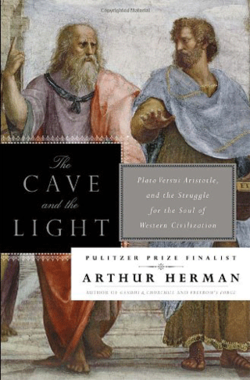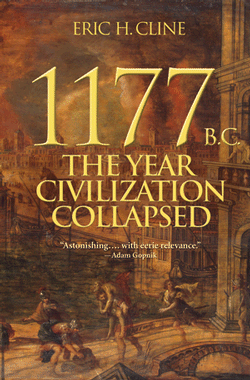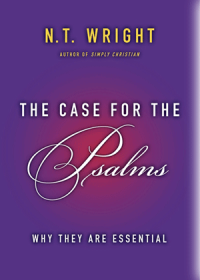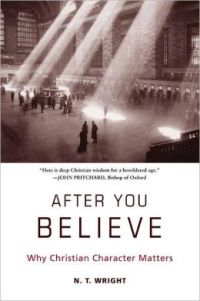 aristotle,
aristotle,  greek,
greek,  history,
history,  philosopher,
philosopher,  philosophy,
philosophy,  plato,
plato,  political,
political,  roman in
roman in  Ancient History,
Ancient History,  Book Review,
Book Review,  Geopolitical,
Geopolitical,  History,
History,  Literature,
Literature,  Society,
Society,  Theology
Theology In the past, I would post only book reviews pertinent to worship, music in the local church, or general Christian leadership and discipleship. Recently, I've been studying many more general topics as well, such as history, economics and scientific thought, some of which end up as reviews here as well.
 Friday, February 9, 2018 at 9:58PM
Friday, February 9, 2018 at 9:58PM  The Cave and the Light: Plato Versus Aristotle, and the Struggle for the Soul of Western Civilization
The Cave and the Light: Plato Versus Aristotle, and the Struggle for the Soul of Western Civilization
I am a student of history, having read much of the main classical Greek and Roman translated history sources. However, my study into the area of philosophy has been tertiary. This book provided not only an architectural outline of the Platonic and Aristotelian philosophical structures but a progressive history of their changes, branches, impacts and major figures on both sides. The book is written with warm and engaging tone while being crisp and insightful in its points.
This is a great book for anyone who wants a thorough history of western philosophy for a layman. It doesn't require college philosophy course training to follow the arguments , ideas or people. It is smartly self-contained and accessible. The best book I have read in the last five years.
The author's primary insight is, itself, a triumph of western thinking- that the world's most proliferated civilization has become so by the dynamism of its two polarities of philosophical inquiry. The tension of that dynamism has become the powerful tool for self-critique and self-correction that is built into the 2500 year-old scaffolding of western thought. This insight alone makes this book not only worthwhile, but essential to virtually everyone interested in their society and participation in it.
The author, Arthur Herman, is scant ever guilty of injecting personal prejudice into the text or it's summary findings. This makes it not only readable, but laudable.
At just over 700 pages, Herman, a Pulitzer Prize nominee, has presented the book in an affable style while staying solidly bound by scholarship and not making illogical leaps in his conclusions. He also doesn't treat the book like a thesis outline. There is no dissertation style and format here, giving the "tell them what you'll tell them, tell them, and tell them what you told them" mindless repetition. Thankfully, the scholar leans this book towards a popular audience and it reads perfectly well for the informed and uninformed reader.
The breadth of this work, the importance of the topic, the careful attention to detail, the rigorous explanation of change, and the final sterling conclusions it draws make this one of the best books I've ever read.
A brilliant work of international significance.
Amazon Link: http://amzn.to/2EfB3NV
Review by Kim Gentes
 aristotle,
aristotle,  greek,
greek,  history,
history,  philosopher,
philosopher,  philosophy,
philosophy,  plato,
plato,  political,
political,  roman in
roman in  Ancient History,
Ancient History,  Book Review,
Book Review,  Geopolitical,
Geopolitical,  History,
History,  Literature,
Literature,  Society,
Society,  Theology
Theology  Saturday, November 1, 2014 at 10:54PM
Saturday, November 1, 2014 at 10:54PM  1177 BC : The Year Civilization Collpsed - Eric Cline
1177 BC : The Year Civilization Collpsed - Eric Cline
Ancient history has been affecting something of a revival of interest in the last 30 years, not only because of it's rich heritage of story which is often converted to popular media (via Hollywood), but because of the amazing strides and discoveries made in history, archeology, anthropology, and even ancient climates. So much new and clarifying information is coming to light in the technical and scientific communities that there is a need for experts with broad experience to retell the narratives of the ancient civilizations to modern audiences.
Into this space has stepped Eric Cline and his spectacular book, "1177 BC: The Year Civilization Collapsed." For most of us, we didn't even know there was another "Dark Ages" in history- other than the one we learned about in high school or college that equated the European middle ages a period of intellectual and economic regression caused by the collapse of the Roman Empire. But, in fact, the ancient era called the "Bronze Age" came to a dramatic close in the late 2nd millennium BC, with the sweeping collapse of nearly all prominent civilizations in the ancient world.
It is this ancient, and first, "world wide" collapse of societies that is examined and expounded by Professor Eric H Cline in "1177 BC." What stands out immediately to the reader is the astonishing deluge of interesting history presented in a powerful narrative style. Cline is not just an archaeologist, he is a a genuinely gifted communicator. Thoughtful and witty, he writes as much for the palpable sense of the societies he is studying as he does for the cold hard facts of the major milestones in the narrative. And this makes the book itself a genuine work of art.
But thankfully, we aren't just left with that. Cline backs up his narrative with profound science and a balanced hand both at antiquity and a look to the possibility that future discoveries may turn the narrative a different direction as the history is clarified. Without the pompous self-assuredness that seems to often rest in the tone of modern authors of books on historical topics, Cline avoids condescending to the reader and frankly (but seriously) admits what facts are sure and which are not. This doesn't weaken his arguments, however, and the entire book becomes much more plausible because of the care and contrition that the author has taken in its presenting.
The topic itself sweeps from ancient Egypt (during the "New Kings" era), to Mesopotamia, to Anatolia and the Hittite empire, to the Cretan (Minoan) and Aegean (Mycenaean) kingdoms and even down through much of the Levant- touching on all the crucial components that came together in the collapse of a truly interconnected world in the Bronze Age. "1177 BC" is as much about economics and politics as it is about war and migrations of mysterious "Sea Peoples". The book unleashes several new concepts about language, texts and lost civilizations. One such civilization, found by archaeology in the last century, is the story of the newly discovered kingdom of Ugarit. That, alone, is a brilliant segment of the book and is a perfect example of what Cline does best- combines his technical eye with a story-teller's prose to paint for us great historical landscapes.
Amazon Link: http://amzn.to/1uiE2tY
Review by Kim Gentes
 1177 BC,
1177 BC,  The Year Civilization Collapsed,
The Year Civilization Collapsed,  Turning Points in Ancient,
Turning Points in Ancient,  ancient history,
ancient history,  economics,
economics,  egypt,
egypt,  eric cline,
eric cline,  history,
history,  politics,
politics,  sea peoples,
sea peoples,  societies,
societies,  war in
war in  Ancient History,
Ancient History,  Art,
Art,  Bible,
Bible,  Book Review,
Book Review,  Economics,
Economics,  Geopolitical,
Geopolitical,  History,
History,  Leadership,
Leadership,  Linguistics,
Linguistics,  Literature,
Literature,  Old Testament,
Old Testament,  Science,
Science,  Writing
Writing  Friday, October 31, 2014 at 11:36PM
Friday, October 31, 2014 at 11:36PM  Case For The Psalms - NT WrightThe weight of most books by NT Wright focus on biblical history, theological concepts and important themes that flow as the undercurrent of the biblical narrative and its teachings. Most prominent of these is Wright's understanding of the mission of Christ, his place in Hebrew history, his embodiment of so many concepts (such as Torah, Temple and prophet), and the kind of kingdom that He inaugurated and passed on to the Christian church through the apostles and early disciples. What all this teaching does, however, can only be properly understood through the world in which Jesus was originally speaking- the world of the first century Jewish tradition. And nothing so profoundly and deeply saturated the Jewish tradition and devotion as the poems and songs of the Old Testament: The Psalms.
Case For The Psalms - NT WrightThe weight of most books by NT Wright focus on biblical history, theological concepts and important themes that flow as the undercurrent of the biblical narrative and its teachings. Most prominent of these is Wright's understanding of the mission of Christ, his place in Hebrew history, his embodiment of so many concepts (such as Torah, Temple and prophet), and the kind of kingdom that He inaugurated and passed on to the Christian church through the apostles and early disciples. What all this teaching does, however, can only be properly understood through the world in which Jesus was originally speaking- the world of the first century Jewish tradition. And nothing so profoundly and deeply saturated the Jewish tradition and devotion as the poems and songs of the Old Testament: The Psalms.
This book is not so much a technical treatise of its main theological components (though that is reflected on). Nor is it an indepth examination of the groupings of the Psalms, or even a detailed exegesis of many or even a few of the Psalms. Instead, this book is NT Wright's personal exploration and explanation of the power and depth of life lived and breathed within the life of the Psalms, as a center of devotional life.
As per usual, Wright centers his readers in the context of who and what we are.
God created humans in the beginning to be his vice rulers over the world.1
From there, the author launches into a swift but careful journey through not only how the Psalms are important to us but why- pointing to the rich heritage that the Jews, and later the early Christians, had with the Psalms as their foundation for devotion and liturgy. Not just that, but he convincingly explains the personal connection of Christ with the Psalms, not just as a forerunning text prophetically announcing Jesus, but as a seminal text which Jesus lived and breathed:
This means, of course, that the Psalms were the hymnbook that Jesus and his first followers would have known by heart.2
The Psalter forms the great epic poem of the creator and covenant God who will at the last visit and redeem his people and, with them, his whole creation.3
The book is arranged in sections primarily answering how the use of the Psalms explore and invite the reader into the reality of God's kingdom. It is a reality which infuses us with the wholly right kind of Christian "worldview", not expressed in or as politics and dogma, but as the time, space and matter through which God, the world, and human beings encounter each other. These three concepts of God's time, God's space and God's matter are at the heart of Wright's exploration of the Psalms.
And if that were all the book contained, it would be well worth your time and investment. But there is something more personal for Wright here. The last two sections of the book (which, at just a couple hundred pages, is much shorter than almost all of his other works) contain a personal testimony and appeal to the church to consider the Psalms as their own life-transforming songbook and poetry.
As a worship leader, writer, Christian, husband, father and leader I have recently found a deeper longing for spiritual formation through the ancient texts of the Psalms. This last year, our own local church has had a program of reading (twice) through the Psalms for us to do as a community as well. Along with this practice and reading this book, I have found a new depth of closeness with God. It isn't something mystical, really. Just a profound knowing that the story that I am in is part of the broader story- my struggles, joys, pains, hopes and loss are understood and shared, not just by the God whom I worship but by the history of humanity trying to find Him in every day lives.
Amazon Link: http://amzn.to/1ufQGKh
Review by Kim Gentes
 Kim Gentes |
Kim Gentes |  1 Comment |
1 Comment |  bible,
bible,  christian,
christian,  devotion,
devotion,  discipline,
discipline,  history,
history,  n.t. wright,
n.t. wright,  nt wright,
nt wright,  old testament,
old testament,  psalms,
psalms,  scripture,
scripture,  theology,
theology,  worship in
worship in  Bible,
Bible,  Book Review,
Book Review,  Community,
Community,  Devotion,
Devotion,  Grief,
Grief,  History,
History,  Justice,
Justice,  Literature,
Literature,  Liturgy,
Liturgy,  Music,
Music,  Old Testament,
Old Testament,  Prayer,
Prayer,  Songwriting,
Songwriting,  Worship
Worship  Sunday, October 12, 2014 at 1:40AM
Sunday, October 12, 2014 at 1:40AM  After You Believe - NT WrightLike all NT Wright books, "After You Believe: Why Christian Character Matters" tackles a specific topic or area with an aim to provide scriptural and historical context as a foundation for the author's theological and philosophical positions on the topic. Wright always does his research and this book is no exception. "After You Believe" tackles the topic of character by looking at the ancient Aristotelian concept of virtue and how it was reimagined and reformed by the theology and practice of both Jesus and Paul.
After You Believe - NT WrightLike all NT Wright books, "After You Believe: Why Christian Character Matters" tackles a specific topic or area with an aim to provide scriptural and historical context as a foundation for the author's theological and philosophical positions on the topic. Wright always does his research and this book is no exception. "After You Believe" tackles the topic of character by looking at the ancient Aristotelian concept of virtue and how it was reimagined and reformed by the theology and practice of both Jesus and Paul.
The book is a treatise exploring a Christian virtue ethic in which the believer takes on the assumptions of character transformation through gradual surrender to God's kingdom concepts of worship and mission. More specifically, this is not a book about the "how-to's" of Christian practice.
What you find here is NT Wright continuing his conversation about how not only our theology, but our practice, must anticipate the full appearing of kingdom of God in it's action. That is to say, Wright's vision of a Christian virtue ethic is based on eschatology (where we are headed) and how full human flourishing occurs as we make the journey there, beginning in this world, not the next.
"After You Believe" is a subtle side-swipe of the standard "spiritual disciplines" talk that has come through in many popular Christian books. Wright has little patience for "self-help" Christian concepts, and debunks the "God-less do-gooding" as much as he deconstructs the popular notion of "cheap grace" - both of which he considers errant parodies of true Christlikeness. In fact, this book nods at Aristotle's astute observations of virtue, and yet, explains that Jesus and Paul answered the ancient Greek notion of virtue with the true answer to human flourishing - love-fueled Christlike character.
NT Wright has done with "After You Believe" what he has done with many other New Testament topics- re-addresses them in light of his creational theology that puts God's goal of rescuing humanity from it's sin stained condition and restoring the future of our created intention through Christ's work on the cross and the Holy Spirit's presence with the church through the ages. This book is vivid, powerful and readable. But it is not simple. It requires you take seriously the concepts he brings to bear in his other books (though he leave you enough overview in this book, even if you haven't read the others).
The purpose of this book is pragmatic (explaining to Christians what they are to do in this life, while waiting for the glorious eternity in the next), but it has a powerful, perhaps eternal intent- to get us walking towards the future in the area of our character, long before the future fully arrives.
It is an excellent book on, as Wright puts it "how to think about what to do". Get it. Read it. You will not be disappointed. A great book from a great thinker about a topic that is of great importance to all Christians.
Amazon Link: http://amzn.to/1sgmqsU
Review by Kim Gentes
 Wednesday, May 8, 2013 at 12:55PM
Wednesday, May 8, 2013 at 12:55PM  Have you ever wondered how we got to the point of automaton being a part of every aspect of our interactions with the commercial world? Wonder no longer. In his recent book "Automate This" Christopher Steiner explores the history of selected technology wizards and innovators who developed ways to use hardware and software algorithms to automate and predict human actions. It is in that realm that Steiner explores the massive influx of technology and technical talent into Wall Street and the money machine that drove the innovations of the 80s, 90s and the first decade of the new millennia.
Have you ever wondered how we got to the point of automaton being a part of every aspect of our interactions with the commercial world? Wonder no longer. In his recent book "Automate This" Christopher Steiner explores the history of selected technology wizards and innovators who developed ways to use hardware and software algorithms to automate and predict human actions. It is in that realm that Steiner explores the massive influx of technology and technical talent into Wall Street and the money machine that drove the innovations of the 80s, 90s and the first decade of the new millennia.
Steiner starts with the iconic story of Thomas Peterffy, whose deterministic style and brilliant mind led him to bring the first streams of technology into the Wall Street world of high finance, commodities, options and stock trading, which eventually led to the consummation of CDOs and other debt instruments that rule the financial world and have contributed to the harried meltdowns we experienced in recent decades. Peterffy's story resurfaces throughout the book as a marker of what algorithms and their creators are all about.
The book revisits the grander history of algorithms from Euclid to Persian mathematician Abu Abdullah Muhammad ibn Musa Al-Khwarizmi to Fibonacci to Newton, Leibniz, Gaus, Pascal, George Boole and others who significantly contributed to the development. The book also spends a chapter exploring automation algorithms in music, from A&R evaluation of songs to writing actual music compositions that match Bach. One chapter detours on the central value of algorithms being their speed of use in automation, and how Daniel Spivey dug a direct "dark fiber" cable from New York to Chicago to ensure he had the pipeline for the fastest speeds of trading decisions to the needed locations- a business (Spread Networks) which became the main pipeline for trading companies wanting ultimate transaction speed for their automation bots handling trading.
Steiner explores the various algorithmic systems from Big Blue to Watson to baseball stats systems, all of which use highly tuned formulas in computers to determine the best ways of winning at the big money of various gaming scenarios. The book becomes very personal, however, as it discusses physician-assisting algorithms that can already handle making diagnostic recommendations, pharmaceutical decisions and even filling the prescriptions via robots. The other well known application of automation he explores is personality evaluations for everything from dating to NASA crew evaluations.
But the book actually comes to rest in a surprising position of recommending that big finance was somewhat of a culprit and that the new world of Silicon Valley is the place all the engineering and technical talent should be focused on. He even brings a call to people to focus on more engineering careers and pursuing computer science in college degrees. His premise lands with the ideas that high finance had previous siphoned off all the high quality technical minds to develop transaction splicing algorithms during the 80s-00s, but that now Silicon Valley needs those minds and talent for real development.
The book is well-written and interesting, though seems rather self-serving, since the author is notably one of those crowd who has defected Wall Street for the glamour of Silicon Valley. The history, back story and prospects of algorithmic work is very interesting and very compelling. Steiner leaves out three of the most important examples of algorithmic influence in companies: Microsoft, Google and Amazon. For some reason, the author decides to ignore these icons, even though it would be hard pressed to find (outside of Facebook) larger success stories based on just the kind of development and algorithms he explores in the book.
Overall the book is definitely worthwhile, as it is a short read (just 250 pages) and very well researched. The style is conversational and non-tech people will not have any problem following the dialog here.
Amazon Link: http://amzn.to/18ZFdOM
Review by Kim Gentes
 algorithms,
algorithms,  automate this,
automate this,  automation,
automation,  book review,
book review,  computers,
computers,  formulas,
formulas,  history,
history,  silicon valley,
silicon valley,  software,
software,  start ups,
start ups,  steiner,
steiner,  technology in
technology in  Book Review,
Book Review,  Business,
Business,  Economics,
Economics,  History,
History,  Science,
Science,  Technology
Technology